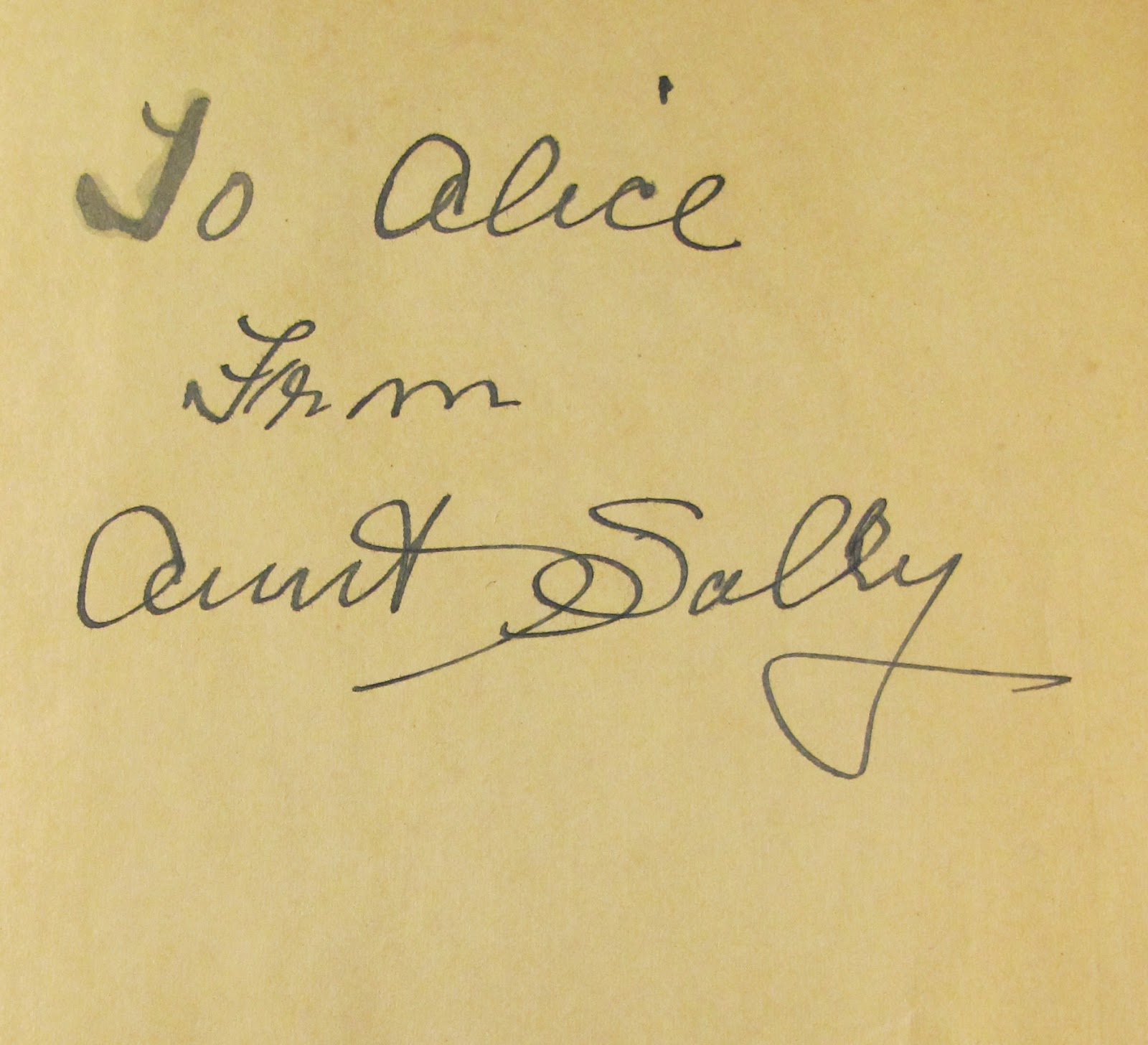
Lucky Alice! Once upon a time, her Aunt Sally gave her a copy of Wild Flowers Every Child Should Know by Frederic William Stack (Doubleday, Page & Company, May 1909)
I know not one thing about Stack, or Alice, or Aunt Sally or Frederic Earle Rockfellow Stack, to whom the book is dedicated:
“To you, my boy whose interest in wild flowers promoted the purpose of this volume and whose delightful companionship made the work a pleasure, to you “sunny Jim” this book is most affectionately dedicated.”
This book is one of my latest acquisitions, purchased at the prompting of Mary Ann from Gardens of the Wild, Wild West. She didn’t have to do much prompting, trust me.
It is an interesting book with a beautiful cover.
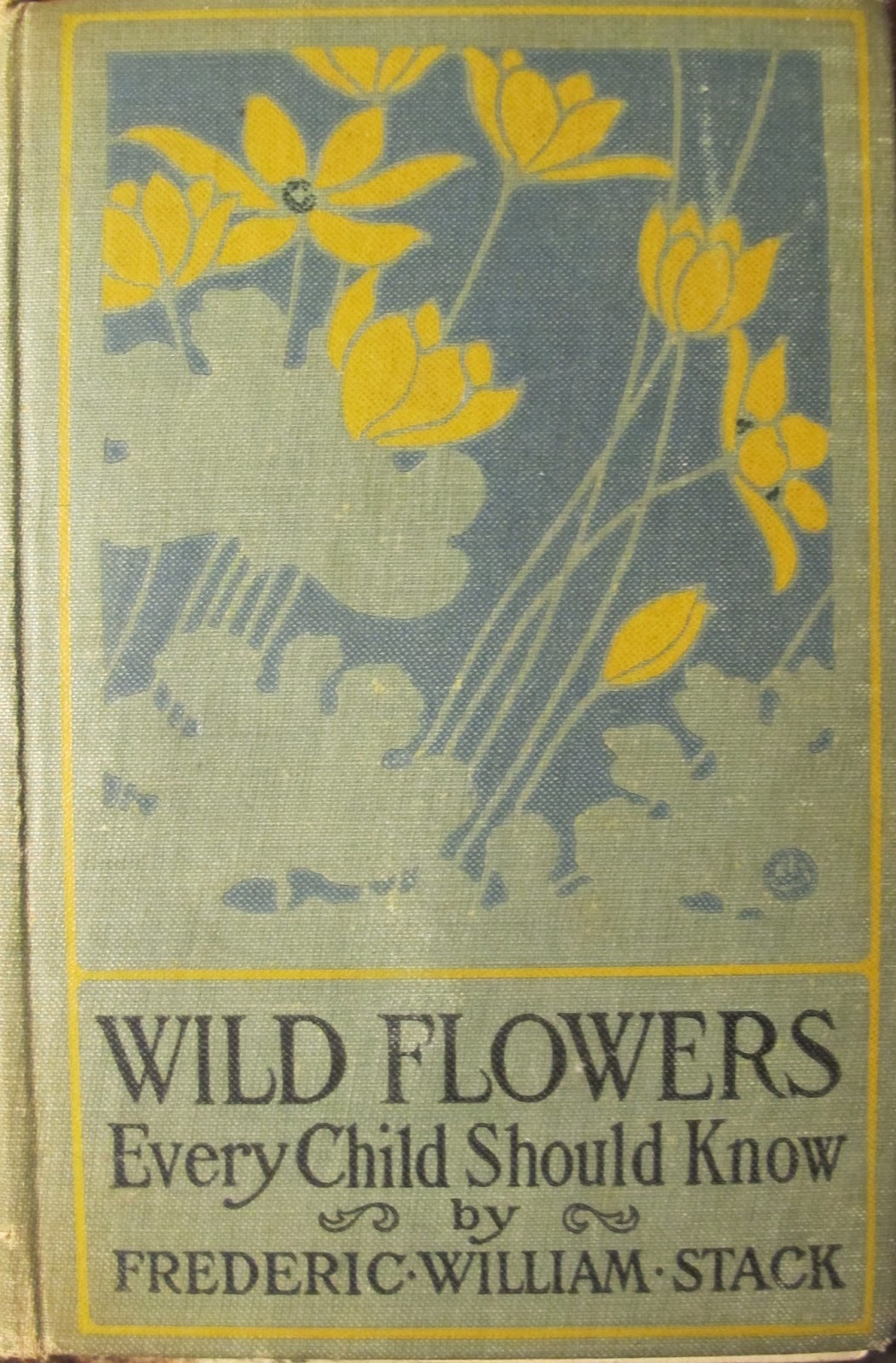
There is one color picture opposite the title page, showing three children picking “daisies pied”.
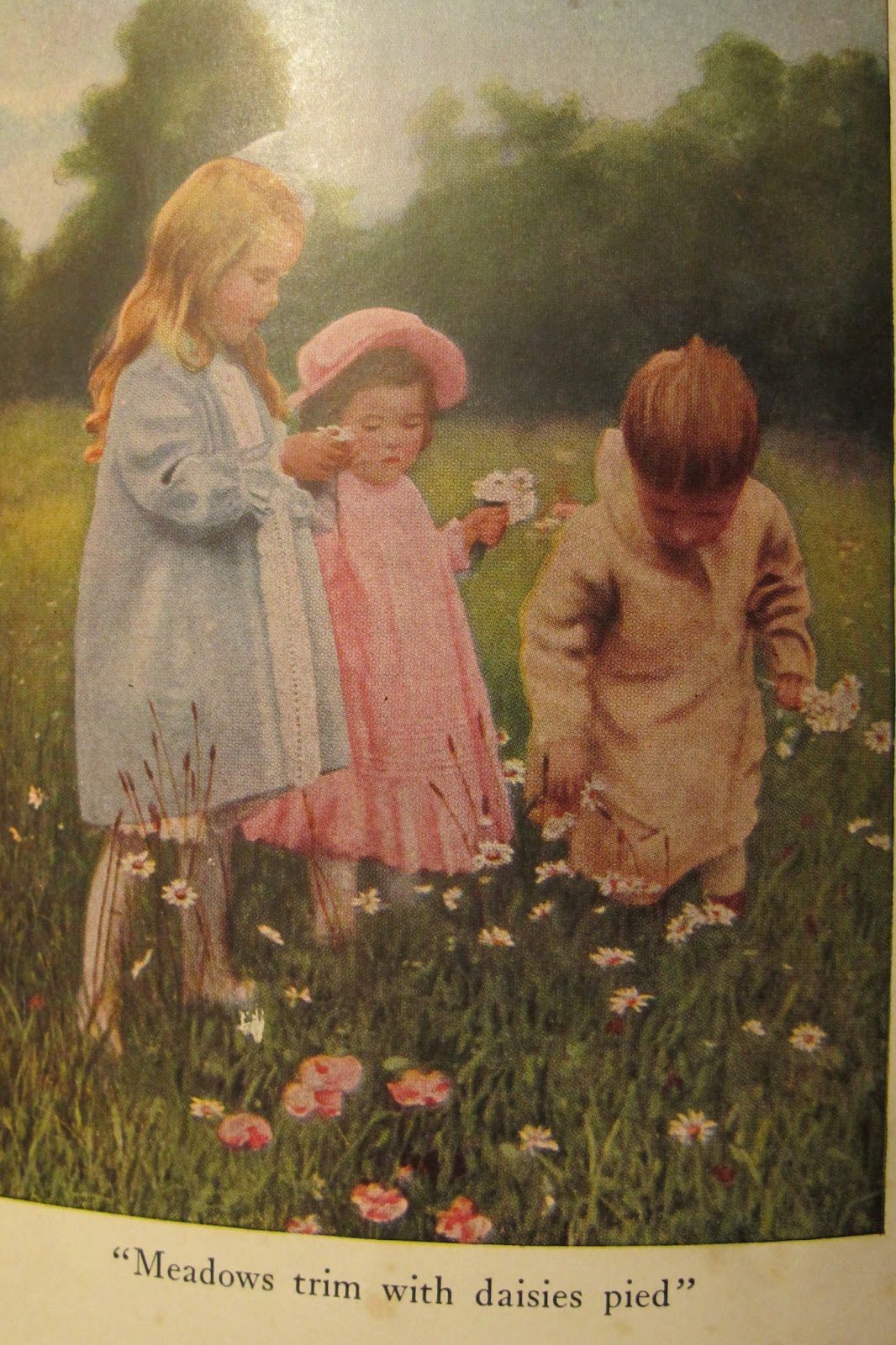
The title page gives a bit of a clue about Stack.
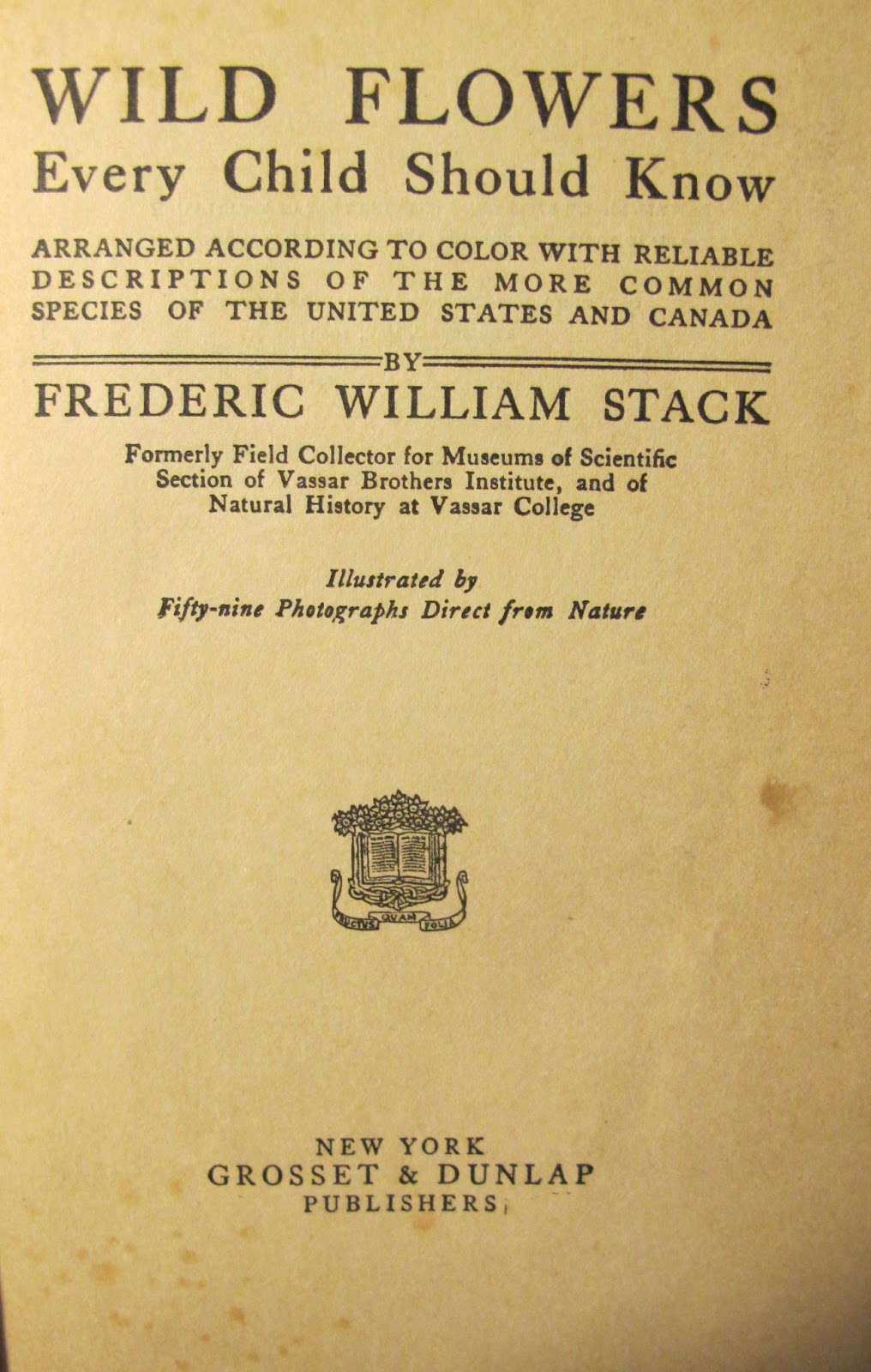
He was formerly field collector or the Museums of Scientific Section of Vassar Brothers Institute, and of Natural History at Vassar College.
The flowers are arranged by colors in the book. I went right to the index and looked up violets, as sort of a litmus test to find out what the book is all about.
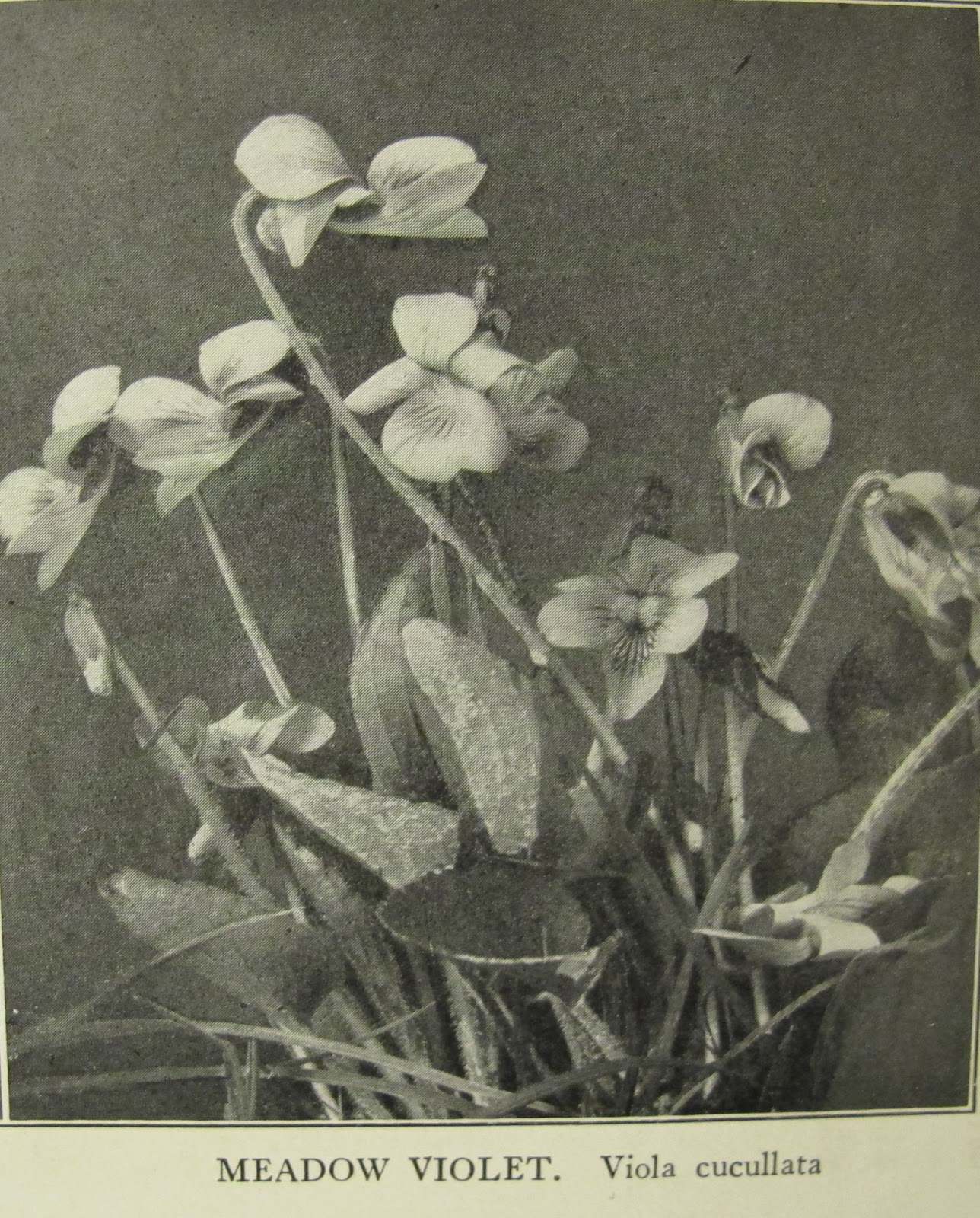
I found 15 entries in the index for violets and turned to page 337 and read this:
“Violets are probably the best and most popularly known of all the wild flowers. The Latin name Viola, is derived from the classic Greek, Ion. Jupiter, we are told, fell in love with Io, the daughter of the river god, Inachus, and in order to conceal her from the jealously of Juno, his wife, Jupiter changed Io into a heifer, and then created the fragrant Violet that she might feed upon the delicate petals during her transformation.”
And then Stack notes, “Be this as it may, Jupiter must have considered the creation of the Violet with exceeding affection for Io, since his irony is revealed later in the lines of Shakespeare, who regarded the Violet “sweeter than the lids of Juno’s eyes.”
Whoa. Jupiter turned his girlfriend into a cow so his wife wouldn’t be jealous, then gave his girlfriend, now a cow, violets that he made for her to eat? And then Shakespeare makes a jab about it. Should children know this? Isn’t there a better story we can tell the children about the lovely violets?
I myself will never look at violets again without thinking about a young cow and a jealous wife. I’m guessing the same will be true for those who just read this post.
Yes, this is my contribution for Wildflower Wednesday sponsored by Gail at Clay and Limestone. I’m sorry to bring the cows into it, but that’s what Stack wrote, and 104 years later, that’s what I read.


This is a very interesting post, especially for me because the first time i saw pansies or violas in Sweden, i immediately fell in love with it. Now, even if they are not growing in our hot climates, i still consider it my favorite, and feel so deprived because i only see them in blogs photos. OMG, maybe in my previous lifetime i could have been Io or the cow, but i don't feel like eating violets! Maybe i am one of Io's playmates then! thanks.
You know, of course, you needn't be a cow for the pleasure of eating a violet. They can be add to a salad or candied with a bit of sugar to decorate a cake or cookie. Yum.
I am laughing so hard. Carol, that was a hilarious post. Love the cover of the wildflower book.~~Dee
Very interesting tale, those Greeks are a fun bunch. I thought you were going to say that Jupiter turned her into a Violet, sweet little flower. A cow?? too funny.
I love this story, Carol, thanks for sharing it! It does seem a little odd, but there are more scary things in children's literature than this, like the witch trying to cook Hansel and Gretel. Looking at violets now with a new appreciation…
Frances
I think Stack just got carried away there.
Well, Jupiter/Zeus was a pretty randy old fellow, so any woman unlucky to catch his eye was often in for trouble. She's lucky she was just turned into a cow:)
No time for blogging these days, but saw your post title and couldn't resist checking it out, Carol. Sounds like fascinating reading!
This is a classic Carol post and not only is it a delight to read~so are the comments! xogail
Carol – what a great story. I have violets in my 'lawn' and I've had cows on my lawn eating violets. I didn't realize they were reenacting a classic story. Children who don't get to hear some of those old stories are really missing something. Not all the stories are about sex.